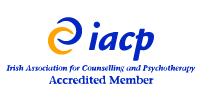By John Lavitt 01/06/16
The Fix Q&A with Dr. Gabor Maté on addiction, the holocaust, the “disease-prone personality” and the pathology of positive thinking.
A Hungarian-born Canadian physician, Dr. Gabor Maté specializes in the study and treatment of addiction and trauma. He is well known for his firmly held belief in the connection between mind and body health. Dr. Maté’s bestselling books include the award-winning In the Realm of Hungry Ghosts: Close Encounters with Addiction. Rather than offering quick-fix solutions to complex issues, Dr. Maté weaves together scientific research, case histories and his own insights to present a broad perspective.
For over a decade, Dr. Maté worked in Vancouver’s Downtown Eastside with patients challenged by drug addiction, mental illness and HIV, including a stint at North America’s only supervised injection site. Beyond his work with addicts, he has over 20 years of family practice and palliative care experience. Dr. Maté regularly speaks to health professionals and lay audiences across North America. He has received the Hubert Evans Prize for Literary Non-Fiction and the 2012 Martin Luther King, Jr. Humanitarian Award from Mothers against Teen Violence.
Question: You have said that you believe that, “many doctors seem to have forgotten what was once a commonplace assumption, that emotions are deeply implicated in both the development of illness, addictions and disorders, and in their healing” – when I got sober at Beit T’Shuvah, the Jewish rehab in Los Angeles, Rabbi Mark Borovitz often told us to forget our feelings and focus on our actions. A common saying in 12-step groups is that you have to act yourself into right thinking. Can you also act yourself into right emotion?
Answer: Can you act yourself into the right emotion? Let me put it this way, John; the question does not interest me. What interests me is for people to really know where they are coming from and where their actions come from. People can act the right way, but that doesn’t mean they are being the right way. You can’t force emotions; you really have to know what they are. For me, the important question is, what are the actual emotions underneath the action that are driving my behavior and where do those emotions come from? For me, it’s not a question of acting into the right emotion. It’s a question of understanding what are the source emotions from which we are acting. That is the really important question.
I completely appreciate the 12 steps, and I talk about them in my book where I have an appendix on them. I think where they fail or where they miss something is when they focus on action while tending not to look at the underlying emotions and the experiences that underlie those emotions. You can go to 12-step groups for a long time and never find out how traumatized you were. That’s where the missing piece is and has been for a long time.
The patients that I worked with—I’m talking about hardcore, street level drug users, people injecting cocaine and heroin and so on—not a single one of them ever came to me and said, “Doc, I was traumatized, and I’m using that as an excuse to do drugs.” They didn’t know they were traumatized. No doctor had ever pointed it out to them. They thought they were just fuck-ups. They thought they were just bad people. They thought they were just addicts. They didn’t realize that they were using the addiction to soothe a deep pain that was rooted in trauma. In all cases of addiction that I have seen, there’s deep pain that comes out of trauma. The addiction is the person’s unconscious attempt to escape from the pain.
That’s not just my personal opinion. It’s also what large-scale studies show. In large population studies, you find that extreme trauma, whether in a population like the Native Indian population in your country or the Aboriginal population in Australia or the Native population in my country with the loss of land and the violence and the forced abduction of their children who were brought up for a hundred years in residential schools away from their families where they were sexually abused, generation after generation, there’s a huge statistical and causative link between that trauma and the addiction. That’s not a theory. It’s just reality.
And it’s not only that. We also know that the brain itself, the human brain itself, is shaped by the environment. The brain is not purely genetically programmed. Brain development occurs in reaction to the environment. The necessary conditions for healthy brain development are healthy relationships with responsive parents. When the parenting environment becomes distorted or hostile and abusive, you’re actually distorting people’s brain development. This means they are going to be more likely to want to use substances to feel better in their brain in order to achieve a different state of the brain.
Whether we are talking about the emotional pain and the shame that’s at the heart of addiction or whether we are looking at the brain physiology of addiction, which is very much influenced by childhood experiences, we are looking at the impact of trauma.
To go back to the original quote about doctors, if we actually understood that all behaviors are for the most part coping mechanisms for emotions that we are not able to deal with, then the focus could shift not just to changing behaviors, but actually understanding the emotions that underlie them. That’s what I think is missing from medical practice. Whether its addictions or whatever it is, we are not seeing what’s driving it and what’s underneath it. That’s why I said the question did not interest me. I’m trying to turn your questions around on its head or I’m trying to put it back on its feet. Let’s put it that way.
Dr Gabor Maté








